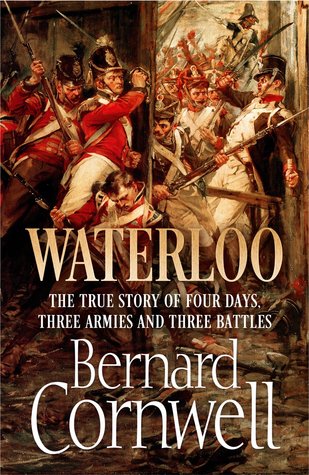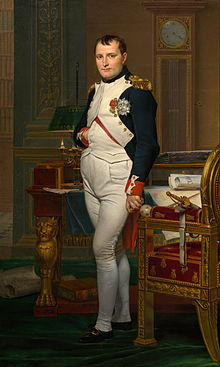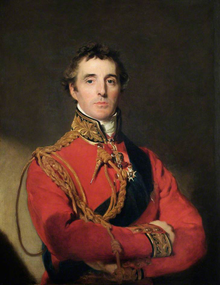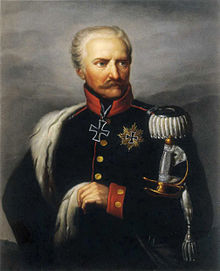 Format read: ebook provided by the publisher via Edelweiss
Format read: ebook provided by the publisher via EdelweissFormats available: hardcover, ebook, audiobook
Genre: military history
Length: 352 pages
Publisher: Harper
Date Released: May 5, 2015
Purchasing Info: Author’s Website, Publisher’s Website, Goodreads, Amazon, Barnes & Noble, Kobo, Book Depository
On the 18th June, 1815 the armies of France, Britain and Prussia descended upon a quiet valley south of Brussels. In the previous three days the French army had beaten the British at Quatre-Bras and the Prussians at Ligny. The Allies were in retreat. The blood-soaked battle of Waterloo would become a landmark in European history, to be examined over and again, not least because until the evening of the 18th, the French army was close to prevailing on the battlefield.
Now, brought to life by the celebrated novelist Bernard Cornwell, this is the chronicle of the four days leading up to the actual battle and a thrilling hour-by-hour account of that fateful day. In his first work of non-fiction, Cornwell combines his storytelling skills with a meticulously researched history to give a riveting account of every dramatic moment, from Napoleon’s escape from Elba to the smoke and gore of the battlefields. Through letters and diaries he also sheds new light on the private thoughts of Napoleon and the Duke of Wellington, as well as the ordinary officers and soldiers. Published ahead of the upcoming bicentenary in 2015, Waterloo is a tense and gripping story of heroism and tragedy – and of the final battle that determined the fate of Europe.
My Review:
To meet one’s Waterloo, has become almost a cliché, a byword for meeting one’s final or ultimate defeat.

The term, as well as all of the cities and towns named Waterloo, come from one singular battle – the place where Napoleon Bonaparte met his own personal and political Waterloo at the hands of the Duke of Wellington.
Today, June 18, is the 200th anniversary of that battle. While a cannon’s weight of books have been published this year to commemorate the bicentennial of the Battle of Waterloo, I wanted to pick just a couple to hopefully expand my understanding of what happened that day.
It is a difficult thing for an author, any author, to build excitement and anticipation into a story where we already know how it ends. Wellington won, Napoleon was finally and ultimately defeated.
The story of the Battle of Waterloo, at least as told by Bernard Cornwell, is a story where we know the ending, more or less, but it is the middle that is obscured, both at the time and even 200 years later.
Or perhaps especially 200 years later, as there has been plenty of time for myths, legends, obfuscations and half-truths to find their own little corner of that field.
As the battle was taking place, a lot of the confusion can be blamed on the fog of war. In that battle, and in that era, it was at least partially a real fog, the smoke from the hundreds of cannons and howitzers, and from the tens of thousands of muskets, all seemingly firing at once at obscuring the participants’ view of anything not immediately next to them.
What we all know is that Napoleon escaped from his exile on the Island of Elba, was declared Emperor again, and marched on Brussels. He intended to retake Belgium, which had been severed from the French Empire after his earlier defeat.

Wellington met him at Waterloo, and eventually defeated Napoleon after three days of bloody battle. Napoleon retreated, and finally surrendered to the British, who promptly exiled him to Saint Helena, where he remained until his death.
This book of Waterloo is an attempt to bring coherence to all of the various eyewitness and survivor accounts of what was a long, hard-fought and ultimately confusing battle fought on multiple fronts by multiple armies over a lot of churned up and muddy ground.
Everything was important, from the drenching rain and mud, to the stone farmhouses and barns that dotted the region, to the tempers of the commanders and the trust (or lack thereof) between the armies.
Even the style of the various commands – where Napoleon led from the rear and delegated everything and Wellington, who seems to have led from everywhere at once and delegated nothing to Blücher, the Prussian general who came to Wellington’s aid, who fought while wounded and at the age of 73, pressing ever forwards in the midst of his men.
The personal accounts are often humorous, in the sense of gallows humor that war brings out in both fact and fiction. Some of the survivor’s’ accounts contradict each other, as they each only saw or heard one tiny sliver of a massive campaign.
Cornwell brings the disparate sources into a coherent whole, and gives even someone with only an extremely casual interest in military history and tactics a sense of what happened and why it happened.
Even though I knew how it ended, finding out how they got there was fascinating.
Escape Rating A-: Waterloo is a battle that was such a turning point in history that we all know how it ended. One of the things that this book does well is to make the reader see how easily it could have gone the other way. Actually, several other ways.
One has the feeling that the contest turned out to be between Napoleon’s overconfidence and Wellington’s ability to pick his ground and utilize it to the fullest extent. Wellington found a place that he could defend, and then settled his troops in to defend it.

We also see the fruits of the trust between Wellington and the Prussian General Blücher, which may have been unlikely (and one of Blücher’s aides hated Wellington) but saved the day.
The descriptions of the way that artillery worked and how it did what it did give the reader an awful sense of just how deadly they were, even if they were damnably difficult to aim. I also finally understand the different infantry formations for the first time.
The author describes the calculus of warfare as a deadly game of rock, paper, scissors, and the analogy works very well.
This is not the only book this author has written titled Waterloo. In his Sharpe’s series, there is a fictional book about the battle and Sharpe’s participation in it. The Napoleonic Wars, including the Battle of Waterloo, have been used as a backdrop in fiction in virtually every genre.
You may have read about the Napoleonic Wars and Waterloo without even realizing it.
In science fiction, David Weber’s Honor Harrington series is the Napoleonic Wars as fought between star empires. In Naomi Novik’s Temeraire, the Napoleonic Wars are fought with dragons. In C.S. Harris’ Sebastian St. Cyr series, the titular character finds himself aiding the police as a way of dealing with his own PTSD after Waterloo. Stephanie Laurens’ Bastion Club features a group of men who were English spies in France during the Wars, and now that the war is over, have discovered that one of their greatest foes is operating in England.
Last, but certainly not least, the Aubrey/Maturin series by Patrick O’Brian details a naval officer’s career during the heady years of the Napoleonic Wars.
So for even an inveterate fiction reader, Waterloo and the Wars that it ended have a tremendous influence on so many works that came after. Reading so many things that are set in or influenced by the era, it is easy to think that we know all we need to know.
Bernard Cornwell’s non-fiction account of Waterloo shows us just how much depth there is to explore.







One thought on “Review: Waterloo by Bernard Cornwell”
Comments are closed.